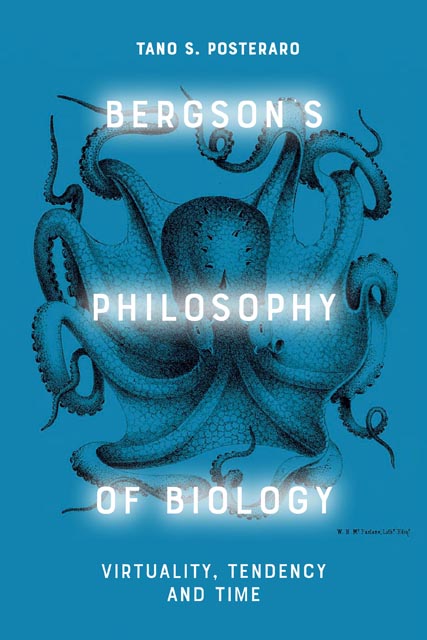Book contents
- Frontmatter
- Contents
- Acknowledgements
- Abbreviations
- Introduction: Between Philosophy and Biology
- 1 The Actual: Mechanism, Finalism, Modality
- 2 The Virtual: Instantiation, Implication, Dynamics
- 3 A Discourse on Tendency
- 4 Individuality and Organisation
- 5 Finalism Inverted
- 6 Canalisation and Convergence
- Concluding Remarks and Future Directions
- Notes
- Bibliography
- Index
5 - Finalism Inverted
Published online by Cambridge University Press: 25 October 2023
- Frontmatter
- Contents
- Acknowledgements
- Abbreviations
- Introduction: Between Philosophy and Biology
- 1 The Actual: Mechanism, Finalism, Modality
- 2 The Virtual: Instantiation, Implication, Dynamics
- 3 A Discourse on Tendency
- 4 Individuality and Organisation
- 5 Finalism Inverted
- 6 Canalisation and Convergence
- Concluding Remarks and Future Directions
- Notes
- Bibliography
- Index
Summary
Individual living systems are the parts and passing moments of a global evolutionary movement. When evolution is considered as a single, stillunfolding event, the élan vital is an image for a unified tendency realised through and dissociated across the medium of particular organisms. The idea that evolution evidences a kind of directionality is called orthogenesis. The qualified finalism of Bergson's position holds that life is oriented from behind, by a shared impulsion, not from ahead, in the form of a pre-existent goal.
Introduction
Individual living systems are defined by the tendency towards temporalisation. They are also the medium through which a global tendency unfolds itself. Each organism is unified in the evolutionary movement. They are its parts and passing moments. The élan vital is an image for the tendency that unifies, patterns, and directs the evolution of life on earth. This is the idea behind what Bergson calls the ‘psychological interpretation’ of evolution.
This chapter begins by distinguishing between the individual and evolutionary registers on the basis of the time scales proper to each. The temporal difference between them corresponds to the conflict between the metabolic self-organisation of individuals and the reproductive continuity of their lineages. I specify Bergson's position on continuity by elaborating upon his engagement with Weismann's theory of the germ-plasm. Bergson retains from Weismann the idea of a line of variational energy that runs through individual organisms. Bergson holds that variations are internally impelled, and therefore directed at their source, shaped and diverted via adaptive pressures secondarily. This position is known as ‘orthogenesis’. It provides the key to Bergson's reformulation of finalism, as a variant of the externalism that was introduced in Chapter 1. This form of finalism consists in the idea that life, as an evolutionary movement, is a virtual whole immanent but external to each of the individual organisms that instantiate it. Their various lineages are not oriented towards a preexistent end but rather directed from behind by a common tendency. It is this common tendency that receives a ‘psychological interpretation’.
This chapter has five parts. (1) ‘Rhythm and reproduction’ and (2) ‘Weismann redux’ extend the last chapter's analysis of organisation by distinguishing between the individual and evolutionary facets of life, first in terms of time scale, then in terms of a continuity of evolutionary development across the discontinuous individual instances of particular organisms.
- Type
- Chapter
- Information
- Bergson's Philosophy of BiologyVirtuality, Tendency and Time, pp. 174 - 208Publisher: Edinburgh University PressPrint publication year: 2022



